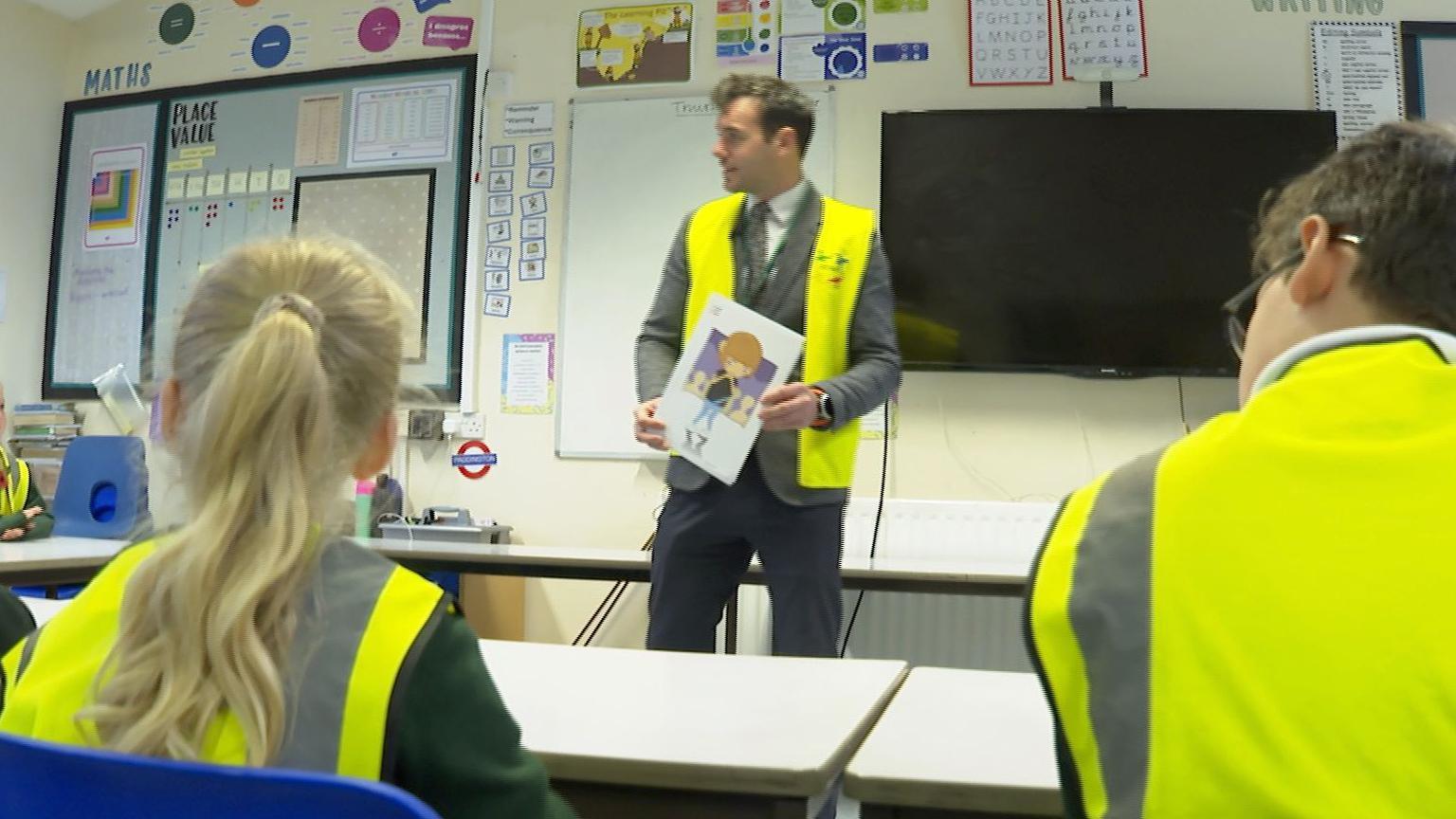Project to tackle bullying in primary schools

Pupils at Willand School are being taught the KiVa Programme
- Published
Primary schools in Devon are taking part in an anti-bullying programme.
The University of Exeter has been leading the study in Devon into the KiVa programme, which emphasises the role of bystanders in preventing bullying.
It is part of a national programme led by the University of Bangor, with more than 100 primary schools nationwide taking part, involving 11,000 students.
Organisers said after the programme, schools reported that children were more empathetic towards victims and issues between peers were reduced.
'Long-lasting impact'
Dr Rachel Hayes, senior research fellow at the University of Exeter, said: “Thinking back to our own childhoods many of us will identify with that child who was always bullied.
"As adults we’ve all seen the long-lasting impact that childhood bullying can leave, and medical research tells us that children who were bullied are more likely to suffer with mental health problems as adults.
"This is why I was so pleased to have led the Devon site in this trial and even more delighted our results have confirmed the data seen in other countries."

Dr Rachel Hayes, senior research fellow at the University of Exeter, said results in Devon were similar to elsewhere
Willand School, in Devon, is taking part in the programme.
“Bullying of course happens in all schools," said Amy Leather, the deputy head.
“It impacts on children not only during their time in school but also at other times too.
"So it might cause anxiety, it might cause depression for example, it might cause social exclusion.
"So anything that we can do as a school to empower our children to keep them safe and happy we would always want to do."

Amy Leather, Deputy Head of Willand School said bullying could have long-term impacts
Prof Judy Hutchings, from the Centre for Evidence Based Early Intervention at Bangor University, said: “Bullying in childhood is one of the biggest risk factors for later mental health problems in childhood and adolescence.
"Unfortunately, it is widespread in UK schools and while all schools are required to have a bullying policy, it’s rarely evidence based.
"The KiVa whole school approach has had really significant effects on bullying in other countries because it focuses on everyone’s behaviour, and removes the social rewards usually gained by the perpetrators.”
Follow BBC Devon on X, external, Facebook, external and Instagram, external. Send your story ideas to spotlight@bbc.co.uk, external.
- Published28 April 2023

- Published28 March 2024

- Published31 October 2024
